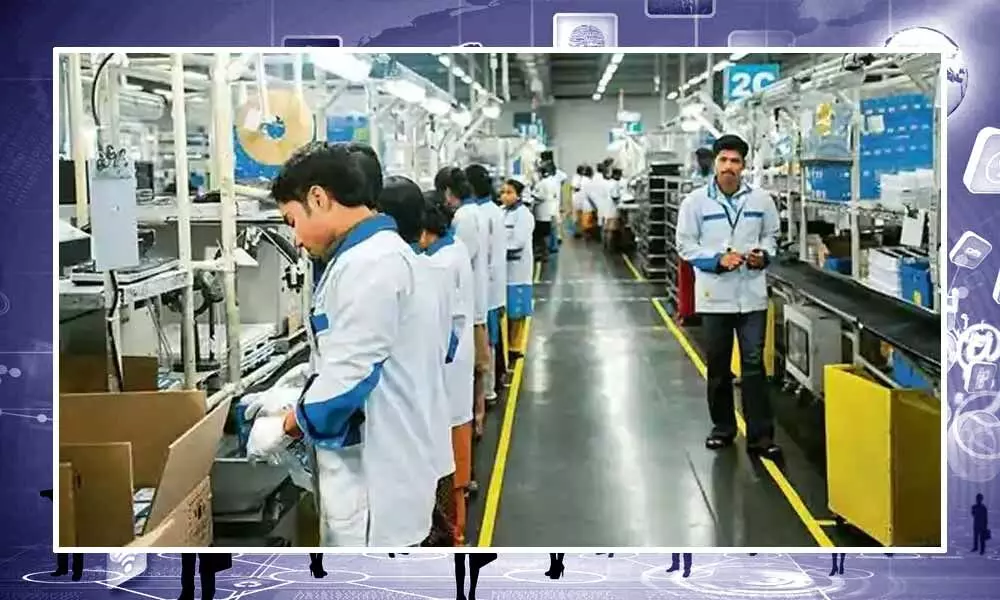Success of 'Digital India' hinges on swift implementation of PLI scheme
The announcement of Production-Linked Incentive (PLI) scheme for boosting the production of IT hardware such as laptops, tablets, desktops, and many more is a welcome move.
image for illustrative purpose

The announcement of Production-Linked Incentive (PLI) scheme for boosting the production of IT hardware such as laptops, tablets, desktops, and many more is a welcome move. Combined with the PLI scheme for consumer electronics products that were announced earlier, these steps would take India towards self-reliance in the manufacturing of these digital products. Currently, only one-thirds of laptops or tablets are assembled in the country as compared to 95 per cent of mobile phones. Therefore, the import of finished hardware products is not only leading to higher outflows of foreign currencies, fuelling trade deficit; but it is also increasing India's dependence on other nations for procurement of these critical products. At a time when India is promoting the 'Digital India' mission, it is imperative to manufacture the hardware products within the country that will reduce the import bill apart from generating employment.
With a total outlay of Rs 7,350 crore over four years, the scheme offers tax incentives between 4 to 1 per cent on net incremental sales of goods manufactured in the country. The Indian government eyes production of more than Rs 3 lakh crore of computer hardware products through this scheme out of which 75 per cent will be exported. If executed properly, this will create large-scale employment through hardware clusters apart from making India one of the hubs for Electronics System Design and Manufacturing (ESDM). The ongoing pandemic has prompted global enterprises to shift manufacturing bases from China. So, such a PLI scheme is definitely going to attract Foreign Direct Investment (FDI) into the Indian manufacturing sector.
The Indian hardware ecosystem is dominated by five major players including HP, Lenovo, Dell, Acer, and Apple. Similarly, Indian manufacturers including Redington, HCL Infosystems, TVS Electronics, D-Link India, and Compuage Infocom among others have significant market shares in the hardware space. The PLI scheme is likely to benefit these companies which are expected to come up with plans to manufacture or assemble hardware products in India. Many experts believe that Apple is expected to start manufacturing its signature product iPad in India.
However, many feel that the outlay for the scheme could have been higher to boost the manufacturing of hardware products in a big way. Therefore, the government can consider increasing the investment amount in the future. At a time when India eyes to reach the $5 trillion GDP mark by 2024, the success of the 'Digital India' mission is crucial to realise this target. In this perspective, respective state governments should aggressively attract investment through business-friendly measures.

